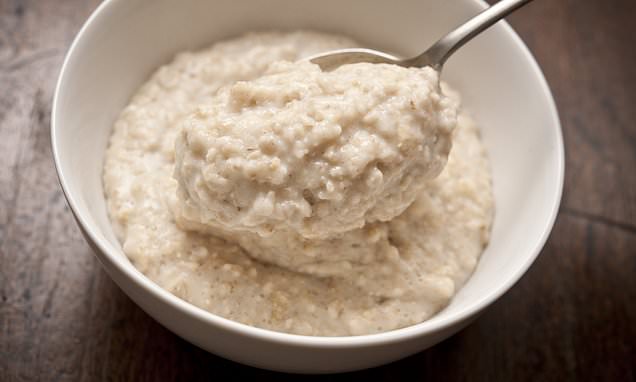Save articles for later
Add articles to your saved list and come back to them any time.
Could a small piece of silicone be a ticket to more choice? More agency? More sex? Periods can be tedious at best: cramps, brain fog, a 3000 per cent increase in bathroom trips and, for many, a kibosh on sexual intimacy.
At the risk of sounding like a 2000s advertisement featuring folk leaping about ecstatically while (allegedly) menstruating, can we find some liberation at the intersection of menstrual and sexual health?
For many people, there is shame around sexual intimacy and periods.Credit: iStock
I’ll come back to the silicone solution, but first let’s consider the power of period shame.
Once, in my criminal law days, a colleague of mine was mid-trial when her period arrived. Day one was diabolically heavy, and it began to leak. She asked the judge for a comfort break but, not long since the last one, her request was denied. This particular pressing bathroom need was perhaps not front of mind for his honour. If your bladder is full, you retain some control over its release – but you have no say over the timing and rate at which your endometrium decides to yeet from your uterus.
What could my colleague do, but put all her faith in the thread-count standing between her and scarlet humiliation? She made it to the luncheon adjournment but only just – she could practically feel the blood trickling down her hosiery and pooling in her pumps.
You develop a pretty thick skin as a courtroom advocate – you get used to embarrassing yourself, feeling vulnerable, and speaking in a forthright manner about all sorts of things, including nature calling. I remember once requesting a break because I’d been ‘over-zealous in my efforts to stay hydrated’. I was rewarded with an eye roll, but also a brief adjournment. Still, I cannot imagine overcoming the shame and stigma associated with menstruation, so as to advertise to a courtroom that I needed to change my tampon.
Reader, have I grossed you out? I am sure I’ve lost many of you already. If someone bleeds from injury, we might treat that blood with concern, fear, anxiety – but we wouldn’t treat it as embarrassing or shameful. We reserve our disgust for when blood flows from a vagina.
When researching sex-ed overseas, I sat in on a class of grade-six kids being taught about periods. The educators showed them pads and tampons, explaining how they worked. There were a lot of grossed-out groans from the boys, and I admit I bristled defensively. That gave way, somewhat, when I saw one boy so embarrassed, he had his head in his hands, unable to look up. Many of us are taught from a young age that periods are secret women’s business – disgusting generally, but ever more so for those who don’t menstruate. What are the repercussions of this censorship-through-shame, aside from risking a perfectly good pair of stilettos at the bar table?
I remember a friend in college referring to her period as ‘blow job week’ because that’s what she would do with her partner in lieu of more reciprocal intimacy, when she was bleeding. This is not unusual: an international survey found 41 per cent of respondents avoided any sexual contact with their own genitals while on their period, and focused only on stimulating their partner.
Missing out on period sex might feel like a cruel joke for those who experience an increase in sexual appetite during their period. Of course, there are plenty of ways to experience sexual intimacy when menstruating, without getting blood on your hands (or anywhere else) – most menstruators orgasm from clitoral stimulation alone, for example. But there’s also nothing wrong with a bit of mess: sex is messy, and awkward, and visceral. It is, after all, human, and pretending otherwise can inhibit pleasure in many ways.
That said, while I advocate for challenging shame and taboo around sex generally, I’m not demanding that we all launch into activities we’re uncomfortable with to get there. Lots of stuff can inhibit our desire: to-do lists, fear of being heard, time constraints, might all dampen the mood – alongside shame, anxiety, and a disinclination to deal with blood-stained sheets. In other words, it is perfectly legitimate to feel hornier for blood-free sex.
Enter a (medical-grade) silicone solution. Sisters Mika Koelma and Zoe Fehlberg have developed the first Australian-designed, and made, menstrual disc called Hey Zomi: a product that sits under your cervix without using suction (like a menstrual cup does) to collect blood. Like other internal period products, such as tampons and cups, it accommodates non-penetrative sexual intimacy. However, because it sits so snug, is flexible and has no stem, it also facilitates comfortable penetration.
Koelma told me she loves ‘mess-free period sex’, saying: “I have been having sex comfortably for years on my period, but this just made it mess-free.” She suggests this period product offers people a step into the conversation, to question some of the taboo around periods, sex and the relationship between the two.
Sex coach and sexologist Cindra Banks says a lot of her clients avoid sex when menstruating – often worrying that blood will go everywhere. “Restricting desire and pleasure for 5-7 days every month, that’s a lot of time that we’re missing out on intimacy opportunities and connection because of this one thing. You deserve pleasure when you have your period. Orgasm can be amazing for period pain. Even if you’re not comfortable having sex, there are so many things you can do to receive pleasure or be nurtured in that time, instead of putting pressure on yourself to give only.”
Here, Banks sees an invitation to move through shame about our bodies, suggesting products like this, and the conversations they start, can encourage us to “show up exactly as we are in the bedroom.”
And beyond – from the bedroom to, perhaps one day, the courtroom? Body shame is insidious: we don’t leave it on the mattress when we move into our public lives, we carry it with us. Maybe the mattress (or the floor, against a wall, whatever) is a good place to start the rebellion.
Make the most of your health, relationships, fitness and nutrition with our Live Well newsletter. Get it in your inbox every Monday.
Most Viewed in Lifestyle
From our partners
Source: Read Full Article



